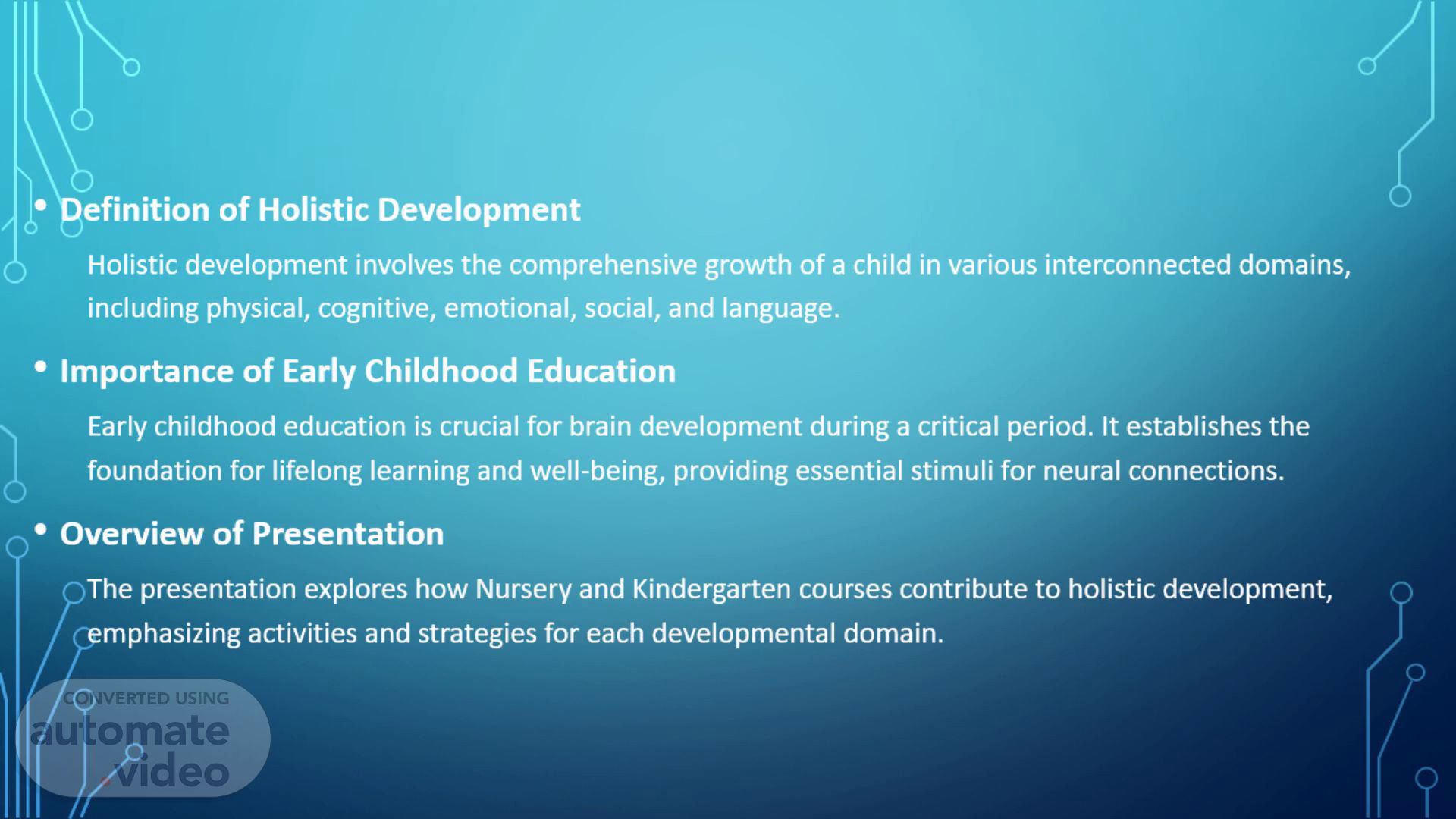
Page 1 (0s)
[Audio] Welcome, everyone. Today, we embark on a journey into the world of holistic development in Nursery and Kindergarten education. Holistic development involves the comprehensive growth of a child in various domains. These include the physical, cognitive, emotional, social, and language aspects. In these early years, the significance of education cannot be overstated. It forms the bedrock for lifelong learning and well-being, shaping the neural connections crucial for future development. Throughout this presentation, we'll explore how Nursery and Kindergarten courses contribute significantly to these foundational years of a child's life..
Page 2 (46s)
[Audio] Moving on to our first focus—Physical Development. Gross motor skills, involving coordination and control of large muscle groups, are honed through outdoor play and structured exercises. Running, jumping, and even activities like dance or yoga contribute to this development. Meanwhile, fine motor skills, essential for tasks like writing, are cultivated through activities like drawing, cutting, and crafting. These activities lay the groundwork for the physical skills needed as children progress in their education..
Page 3 (1m 23s)
[Audio] As we transition, let's delve into Cognitive Development. Early literacy and numeracy skills are introduced through engaging activities. Letters, numbers, and basic concepts become familiar, and storytelling and rhymes stimulate language development. Equally important is the cultivation of problem-solving and critical thinking skills. Educational games and puzzles encourage children to explore and think critically, fostering a foundation for future cognitive tasks..
Page 4 (1m 56s)
[Audio] Our third domain of focus is Social-Emotional Development. Building relationships is fundamental. Peer interactions and cooperative play teach communication, sharing, and collaboration. Additionally, group activities promote teamwork, fostering positive relationships with peers. In the realm of emotional well-being, teaching coping mechanisms and emotional expression helps children regulate their emotions. Creating a positive learning environment, along with collaborative efforts between educators and parents, further supports a child's emotional development..
Page 5 (2m 36s)
[Audio] As we conclude, we've explored the holistic development facilitated by Nursery and Kindergarten education. It's clear that this comprehensive approach, addressing physical, cognitive, social, and emotional aspects, lays a foundation for lifelong success. Empowering the next generation with resilience and skills, our collective commitment is essential. Let's continue to work collaboratively, educators, parents, and the community alike, to provide a nurturing environment that supports the holistic development of our children. Thank you for your commitment to childhood growth. The floor is now open for any questions or thoughts you may have. Let's continue the conversation!.